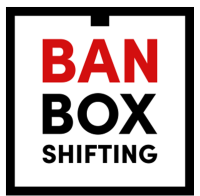Pressure from Ban Box Shifting and other campaigns will see more money reach local councils and the potential disappearance of empty shops on our high streets
The Ban Box Shifting campaign is pleased to announce a significant victory in its campaign against business rates avoidance, with the Treasury and the Department of Levelling Up Housing and Communities extending the Empty Property Relief (EPR) "reset period" from six weeks to thirteen weeks effective from 1 April 2024, a decisive move against the tax avoidance practices that have recently contributed to council bankruptcies and empty high street shops.
Box shifting is a tax avoidance practice which exploits EPR and costs councils £250m annually, incentivising landlords and multi-chain operators to keep high street properties unoccupied. The Ban Box Shifting campaign was set up in response to recent local council bankruptcies and the mass closure of stores by Boots, The Body Shop, and others. It has gained the support of over 100 local councillors and MPs, with the London Assembly passing a motion to ban box shifting in November of last year.
In its response to the Business Rates Avoidance and Evasion Consultation, in which the new changes were announced, the government acknowledged the exploitation that the practice was having on the collection of business rates.
EPR functions by granting owners of vacant non-domestic properties a full 100 percent relief from business rates for the initial three months following the property's vacancy. After this relief period, if the property still stands vacant, the owner must pay the property's full business rates liability.
In instances where a vacant property is reoccupied for a span of six weeks or more, it qualifies anew for a period of EPR upon becoming vacant again. This six-week occupancy is termed the 'reset period,' necessary for requalifying for subsequent EPR benefits.
Nonetheless, certain landlords and operators of multiple properties engage in a practice known as 'box-shifting.' This involves briefly populating a building with boxes or other furniture, merely to meet the six-week occupancy requirement. Once this 'reset period' concludes, the items are removed, leaving the property vacant again and thus eligible for another cycle of EPR benefits.
The government's decision means that commercial property owners will now have to wait longer before being able to claim EPR, forcing landlords to utilise empty properties and decreasing the likelihood of further empty high street shops. The decision also brings England in line with recent year decisions by Wales and Scotland to extend the qualifying period to quash the abuse.
However, there still exist a number of business rate avoidance practices which continue to deprive local services of vital money. This includes the ‘snail sham' option in non-agricultural space, where occupiers can put a snail farm or other similar species within their premises to claim the space is agricultural and therefore exempt themselves from rates.
Cllr Bassam Mahfouz, Labour candidate for the London Assembly election said: "The negative impact that empty properties have on both our local communities and councils is clear. Box shifting, and similar business rate avoidance practices, deny councils of crucial revenue for essential services while leaving shops and office buildings closed to the detriment of residents and our High Streets.
"With certain councils losing up to £35m due to box shifting alone, the government's move to make it harder for landlords and operators to engage in box shifting is a step in the right direction, but more needs to be done. Sadly, the pre-pack administration of The Body Shop stores this year, at a time when a growing number of councils are at risk of bankruptcy, is a reminder that more needs to be done to ensure the financial health of councils, as well as the health of our struggling High Streets and hard-pressed consumers."
Shaylesh Patel, Founder of Ban Box Shifting commented: "The sorely needed business rates income that will accompany the changes to EPR comes at a critical moment for our nation's local councils. The consultation's recommendations will also deter landlords and multi-chain operators from keeping properties empty in perpetuity, bringing with them the prospective return of bustling high streets. This should be welcome news to landlords with a presence on our high streets.
"While the anticipated changes represent a significant victory against anyone intent on exploiting rates relief loopholes, there remains a creativity and persistence with which some multi-chain operators approach tax avoidance that still needs addressing.
"That is why we reiterate our call for a one-year time limit on avoidance and properties left in limbo because of insolvent tenants, to ensure councils start to receive rates revenue and spaces are quickly re-activated. The government also needs to remove the ‘snail sham' option in non-agricultural space.
"Finally, we must do more to promote ethical rates mitigation, which remains unblemished and unchanged from the recent rates avoidance consultation and budget day announcements. Rates mitigation by working with the charity sector by offering rent-free space temporarily is, like moving personal savings into an ISA, not abuse, but a lawful and responsible way to look beyond financial goals. Through this, genuine charities delivering vital activities can occupy otherwise empty commercial premises and reduce business rates burden by qualifying for, and paying, 20% of the normal empty business rates charge."
For more information about the empty rates changes from 1 April 2024, you can watch a video detailing this here. For further information please visit Ban Box Shifting





